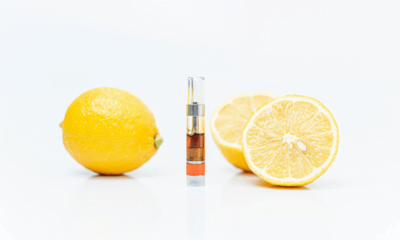While CBD shows promise as a possible treatment for Covid-19, more science is needed before it can be recommended by clinicians, say researchers.
The authors of a new review paper have concluded that CBD shows “promising anti-inflammatory effects” in the treatment of Covid-19 symptoms and have recommended that more research be carried out.
While vaccines have been designed to protect against the severity of disease, which has now claimed more than 6.42 million lives worldwide, there remains a need to find a safe and effective way of managing the hard-to-treat symptoms, particularly in those who are vulnerable.
A number of studies have suggested that medical cannabis – particularly CBD – may be a helpful tool in managing these, due to its anti-inflammatory and immunosuppressive properties.
In a recently-published paper, researchers reviewed the effectiveness of CBD in treating the inflammatory-related symptoms of Covid-19 in nine articles, published between September and December 2020.
The majority of pre-clinical studies reviewed showed that CBD reduced the inflammatory response in Covid-19.

Severe Covid-19 symptoms are brought on by an extreme immune response, known as cytokine storms, which cause acute lung injury.
Studies have shown that activation of the endocannabinoid receptors, CB1 and CB2, which interact with CBD in the body, causes a reduction in the production of proinflammatory cytokines.
According to the paper, pre-clinical studies showed “promising results” on inflammatory outcomes of the lungs, the gastrointestinal tract and of the cornea.
Another recent animal study suggested that CBD can inhibit the Covid-19 virus (SARS-CoV-2) from replicating, by upregulating the stress response in lung and nasal tissues, when used in a dose-dependent manner during the early stages of infection.
Furthermore in human data collected from the National COVID Cohort Collaborative, 100 mg/mL oral CBD solution was shown to have a significant negative association with positive Covid-19 test results.
No adverse effects or drug interaction were found in any of the human or animal studies in the review, however the authors caution that possible drug interactions need to be examined more extensively, as well as the safety and effectiveness of chronic use in humans.
There is as of yet, too little data from human trials to support its use in the treatment of Covid-19, the authors conclude.
“An important message to the clinicians is that there is insufficient evidence to support or refute the use of CBD in the treatment for COVID-19 symptoms,” they stated.
“CBD has shown some promising anti-inflammatory effects in a few pre-clinical studies, but not in the few human studies.
“Evidence on beneficial or harmful effects of CBD in the treatment of COVID-19 is missing and should be further investigated.”
Home » Science » CBD “shows promise” for Covid-19 – but more evidence needed

 News6 months ago
News6 months ago
 Science5 months ago
Science5 months ago
 Industry6 months ago
Industry6 months ago
 News6 months ago
News6 months ago
 News5 months ago
News5 months ago
 Health4 months ago
Health4 months ago
 News5 months ago
News5 months ago
 Health3 months ago
Health3 months ago













